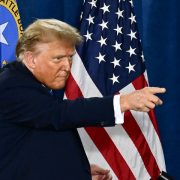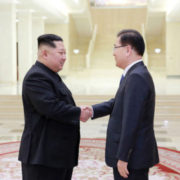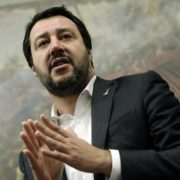Historical normalization of ties between China and Vatican is making rapid progress hinging on China’s landmark acceptance of a basic principle of western societies, solidly denied for millennia in China – a division between politics and religion.
For millennia China’s emperor was the son of Heaven, accruing political and religious powers. Even in the 17th century, at the height of the Jesuit influence in China when fathers Shall or Verbiest were ministers at the court of the Qing ruler, the emperor never conceded the appointment of a bishop in China, considering it a Papal infringement on his powers.
Yet presently China came to a different decision allowing the Pope to be the formal head of Catholics in China.
The decision in the Communist Party came about after decades of research and contacts with Rome. Fundamentally, it stemmed about from the late 1990s when Chinese leaders realized that common people had an unquenched thirst for “spiritual satisfaction”. The Communist Party, with its materialistic ideology could not satisfy it, and the old religious framework, Confucian/Buddhist/ Taoist, had been also erased by decades of fiercely antireligious Maoist rule.
The party in the early 2000 then sponsored a Buddhist revival, hosting massive conferences calling on living Bodhisattvas from all over Asia, and deepened talks with Holy See. It recognized the necessity of sponsoring religions to help establish a “harmonious society”, as the 17th Party congress in 2007 stated. However, talks dragged on as Beijing felt no sense of urgency.
An acceleration of the process came in the past couple of years with Pope Francis global projection. Then the Chinese leadership realized that the Holy See was the world “global soft power”, and as an ambitious great power China could not afford to shun and ignore it.
The forthcoming groundbreaking agreement then it will enhance religious freedom in China not only for Catholics. Beijing has no interest, and little trust, in sponsoring Catholicism as a “state religion”. Conversely it will want to compensate the catholic inroads with openings also to other religions.
Moreover, division of realms between politics and religion constitutes the fundamental principle from which modern division of powers derived in the west. Thus, the Communist Party acceptance of this principle means that a possible small crack has officially opened in the dogma so far untouched of the communist total monopoly of power.
This doesn’t mean that the Communist Party is ready for division or powers or democracy, quite far from it. But practical Chinese have opened the ideological armor for the sake of improving dreary social harmony, just like 40 years ago opened to market reforms to mend dismal economic performance.






Nessun commento